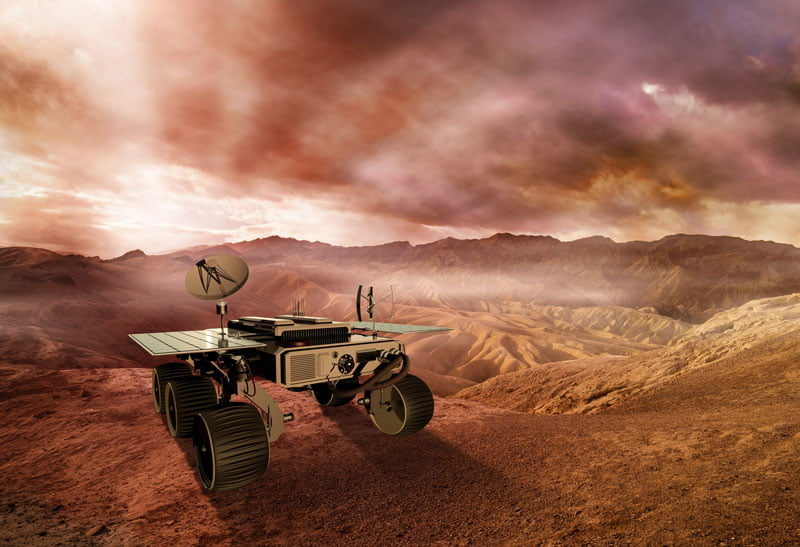
IS SPACE THE FINAL FRONTIER?

Are we alone or not?
There are many conflicting views regarding this subject. Religious views insist that we are the only ones. Others firmly believe that we may not be alone in the universe! The problem may be by what we regard as life. Is life, intelligent or not, only to be found in humanoids like us? That is certainly not true. Life, as we define it, is found in microorganisms like viruses, plants, animals, insects, and any other living being. The million-dollar question may be how this alien life will present itself to us? Religious people, mostly Christian, believe that all humans are created to the image of God. That said, should we then believe that ET will be humanoid and be more or less like us in looks and general appearance? Scientists don’t necessarily agree with this point of view.
As far as looks are concerned, that may depend entirely on what kind of intelligence we expect. Let’s take a look at life on earth itself. Men are known to exist in extreme conditions like the polar circles, the desert with its extreme heat and other outrageous locations. Human and animal life can flourish in some of the most extreme conditions. That is true to some extent but remember that most if not all life as we know it, won’t be able to survive long periods without water!
WHAT ARE THE REQUIREMENTS OF HUMAN EXISTENCE THEN?
Nobody knows for sure why we exist, but the fact is that we DO exist and that we flourish. Whether our existence is the result of creation or evolution we are here! Aristotle believed that if you can metabolize and reproduce you are human! We can reproduce, we can feed ourselves and we have intelligence. In short, it appears that ‘life’ has to be able to feed itself and be able to reproduce in some or other way to be classified as such. At this point in our existence, we reproduce too many of ourselves and not enough to feed what we produce! One cannot help but sometimes wonder whether other ‘existing ‘ bits of intelligence are faced with similar problems. Can we exist in another place in the universe? Sure we can, but only in earth similar conditions or artificially created earthly conditions.
ARE THERE HUMANOIDS ON OTHER PLANETS?
Humanoids, like us, will only be able to exist on earth-like conditions. Let’s go one step further. Being intelligent living beings, should we look for life similar to ourselves or just for intelligent life? The latter will probably be the better option. NASA believes that the best way is to follow the water trail. Where there, water, there will be some form of life, or so they believe. Will that life be intelligent? We won’t know until they are discovered. On the other hand, they may just discover us first!
Frank Drake proposed a complex formula to estimate the possibilities of life in the universe. His problem is that they have very little in the line of factual matter for input. It is estimated that our Milky Way has some 160 billion planets! We can only estimate if any of those planets could support carbon and water-based life or for that matter intelligent life in some form or the other.
The Habitual Exoplanets catalog suggests that perhaps only 53 of those planets may support life of some sort. Only 13 of the planets might be able to support life as we know it! Heavy odds you may say? Sure, but better than no odds at all!
MICRO AND SINGLE CELL ORGANISMS
Single-cell organisms are probably the first form of life that is going to be discovered. The simple reason is that these tiny organisms could be dormant for hundreds of years and that they can defy any normal definition of life. Searches for microbial life on Mars have not been very successful thus far. But then again, these organisms can survive in the harshest and most extreme environments, they are most likely to be the first to be found.
In 2013, following a meteor shower, British scientists discovered microorganisms in the atmosphere. It was presumably a by-product of a meteor shower. Professor Wainright and his team insisted that the microbes would not have been able to drift into the atmosphere and that it originates from outer space. Up to now, there is no clarity on this matter.
PLANT LIFE IN THE UNIVERSE
Plants, as we know it on earth has one important requirement for survival and that is water. True, there are places in desert areas that have water and no plant life, but as a rule, some or form of vegetation is found around water. Then again, plants like the well-known tumbleweed can flourish in arid conditions without soil. However, most desert plants will need water at some stage, but that is plant life as defined on earth. What if we find intelligence in plant life on another planet? It probably depends on what kind of intelligence we expect.
Stefano Mancuso suggests in his book ‘Brilliant Green….’ that plants are good problem solvers and that they might be able to communicate with each other. On the other hand, alien plants found on another planet may just prove to be one of the big dangers facing space explorers. The reason being, plants have an extraordinary ability to produce toxins to ward off predators. Hopefully, we won’t be encountering any flesh-eating plants in our explorations! Scientists believe that plants could grow in Martian soil. There are enough nutrients in the soil, but the cold might hamper growth. It is possible though, that the plant life that had existed on the red planet may have evolved to survive and flourish in those conditions.
Bottom line is that earth type plants will need earth type conditions to develop and to evolve. Will intelligence be part of plant evolution at the same time? Nobody is sure.
ANIMAL AND INSECT LIFE
Animal and insect life as we know it on earth will require the same living conditions needed by us. They need air and food to survive and must be able to complete an intricate cycle of life. In an intricate food chain they can live of each other, but they all have one thing in common, they all need air to breathe. Insects are known to be able to survive in very harsh conditions and certain insects like cockroaches can even survive an atomic explosion!
Dr. Dirk Schulze-Makuch, from Washington State University, made this remark in the INDEPENDENT: ‘It has always fascinated me to go to the places where people don’t think anything could survive and discover that life has somehow found a way to make it work’
Then chances are that some form of animal or insect life can exist without oxygen. The possibilities of non-intelligent life are endless.
WATER-BASED LIFE
Water-based life on earth can be counted in the millions. The Technical University of Berlin classifies three types of water to be found on a planet: Atmospheric water in clouds and rain, surface water including dew and the oceans and then subsurface or groundwater as was discovered on Mars. They believe that exoplanets with different water biochemistry than ours are less likely to contain life. Then again, that is life as we know it!
The 2004 and 2011 great tsunamis lead to the discovery of some 300 plus new species! Imagine if this is happening on our home planet, what water-based life could be found elsewhere in the universe!
ARTIFICIAL INTELLIGENCE
The fact is that we are creating our own ‘alien life” with our robotic and android science. We are creating ‘them’ to serve us and make life easier for us. Robots and androids are the brainchildren of human beings and they are developed to serve or to act on our behalf. The military has a different point of view though. To them, robots and androids are new weapons to be used against what is perceived as ‘the enemy.’
Robotics will eventually become a life form in itself. Self-replication is not a pipedream any more. With the advancements of 3D printing, it’s slowly becoming a reality.
Are we going to find artificial intelligence in space? We don’t think that it is a realistic expectation. Consider this theory: An alien life form that differs from us is more likely to develop ‘artificial intelligence’ in line with their evolution. At first contact, we might not be able to recognize it as such.
SCIENCE FICTION
What a wonderful world we have in the magic of science fiction! What if it can be true? In 1865 Jules Verne wrote his book; ‘From earth to the moon’. One hundred years later Neil Armstrong took the first giant step for mankind on the moon. Yesterday’s science fiction became today’s reality. Science fiction is becoming fact in more than one way. Reality is that science fiction inspires research and that brings new ideas to the forefront. In 1964 self-driving cars, 3D and even flat-screen TV was labeled as ‘ridiculous’, and yet, where are we today?
You may wonder what all of this has to do with alien life. We need ‘farfetched” technology to get around in space. We will need sci-fi technology to find life in space and to recognize it as such.
UFO’s
UFO’s are with us for more than a hundred years. Stories about unidentifiable flying objects and alien abductions surface at regular intervals. It inspired many conspiracy theories like Area 51 and many others. So-called abductees stood by their stories. Flying objects are seen at regular intervals. The first UFO’s appeared to be ‘flying saucers’. These observations evolved into other types of spacecraft through the years. In other words, UFO sightings and spacecraft descriptions changed in line with technological changes. The first UFO’s was seen as far back as 1896 and was reported to be powered by steam! Really?
Will alien life forms, technologically advanced enough to reach earth be as primitive to go as far as dissecting abductees? Surly with their advanced technology they should be able to just, well, ‘scan” life on earth so to speak? In their ‘advanced’ state they should be able to recognize us as intelligent living beings. That is probably why no ‘alien” ever uttered that well-known phrase ‘take us to your leader’!
Are we going to find life in some form or the other in outer space? Some scientists claimed it to be highly unlikely. Others indicate that we may not be too far away from that remarkable milestone. So, until the first contact, it is “Beam us to the surface Scotty!’

FDN LIFE ARTICLE >
SHARE
FDN LIFE MAGAZINE - ISSUE 7 >
CONTENT
- Editor's Notes >
- TOP READ > In Conversation With IdeaBuddys Founder & CEO Nemanja Zunic
- HEALTH & WELLNESS > Keeping Sane During Lockdown – Top 9 Mental Health Activities You Can Do At Home
- DIY > 5 Easy Diy Methods To Remove Shirt Stains
- FITNESS > Top 12 Exercises You Can Do At Home During The Corona Lockdown
- BRAIN FOOD > Best Food to Keep Your Brain Sharp & Healthy
- RECIPE > Healthy 4-Ingredients Vegan Muffins
- MENTOR NOTES > Part 6 - From The Worlds Most Inspirational - Jim Rohn
- FREE COURSE LESSON > WordPress Training – Build A WordPress Online Store! (Ideal For Beginners) – Lesson 1
- INSPIRATION > Top 6 Videos To Keep Motivated, Inspired & Informed
- INTERESTING READ > So You Want To Buy Some Property? How About the Eiffel Tower or Big Ben?
- ENTERTAINMENT > Top Movies & Series
- ENTERTAINMENT > Top Games
- SPACE > The Next Frontier
- Thank You > Have A Great Day!
FDN LIFE >
AUTHOR
Ben Masterson
SUBSCRIBE TO
FDN LIFE NEWSLETTER!
Join our mailing list to receive the latest news, information, and special offers.


